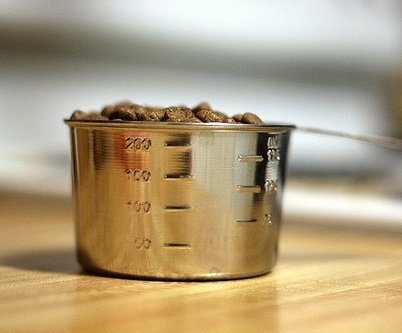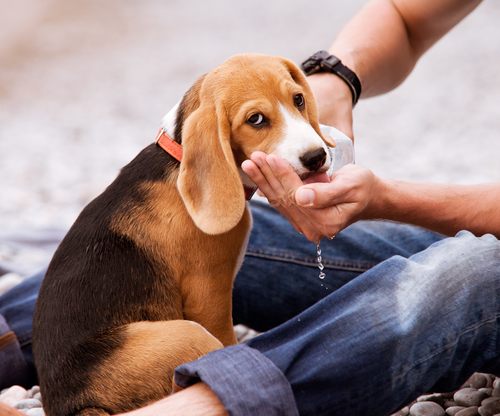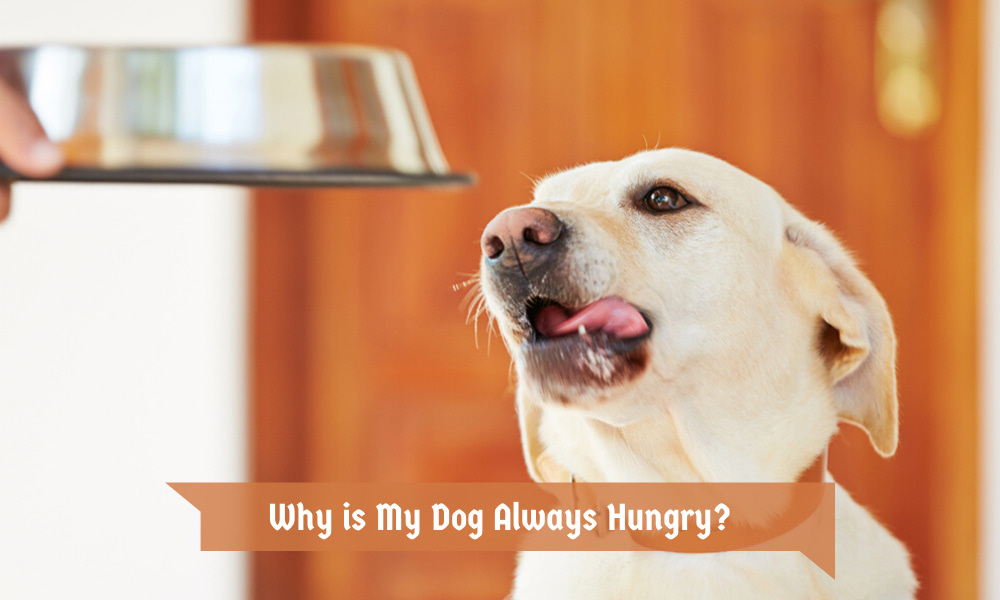
Most dogs are not picky and eat anything you get them – and even most things you don’t! Human food, dog food, poop, garbage… dogs just love to eat. But have you ever stopped to ask yourself, why is my dog always hungry? The truth is there isn’t a simple answer.
While in most cases this is seen as just normal dog behavior, there are real reasons behind it. Sometimes, those reasons are things you can easily fix. Other times, they can indicate that there’s a bigger problem at play. Here are some reasons why your dog might be hungry all the time and what you can do about it.
Contents
It’s Perfectly Natural
Remember that dogs evolved from wolves and there’s still some of those instinctual behaviors in their genes. The wolves that our dogs descended from didn’t always know where their next meal was coming from and would sometimes have to go days without eating. When they did find food, the leader of the pack ate first and the others had to fight over what was left. They ate what they could, when they could, just because it was there.
Though your dog knows it doesn’t have to hunt, there is still an instinctual fear that the food will stop coming and it will have to scrounge and scavenge again. For this reason, dogs often eat when they’re not hungry.
It’s Psychological
Sometimes, your dog may be reacting to stress and anxiety by overeating. There are some pretty common things that can cause this, including:
- Moving to a new home. Settling into a new environment and routine is not only difficult for you and your human family, but it’s also stressful for your dog. It can take a few days or weeks for your pup to adjust. In the meantime, it may cope with nerves and anxiety by wanting to constantly be fed.
- Bringing another dog into the home. If you bring a new dog into your home, it’s possible that your pet may start to panic that the new dog is there to take its food. Remember, their instincts are going to tell them to eat what they can when they can, especially if they perceive a threat. Monitor your pets and make sure they’re not stealing each other’s food to minimize this problem. Make sure each pet is getting the same amount of food and make mealtime in different rooms so they can eat separately if necessary.
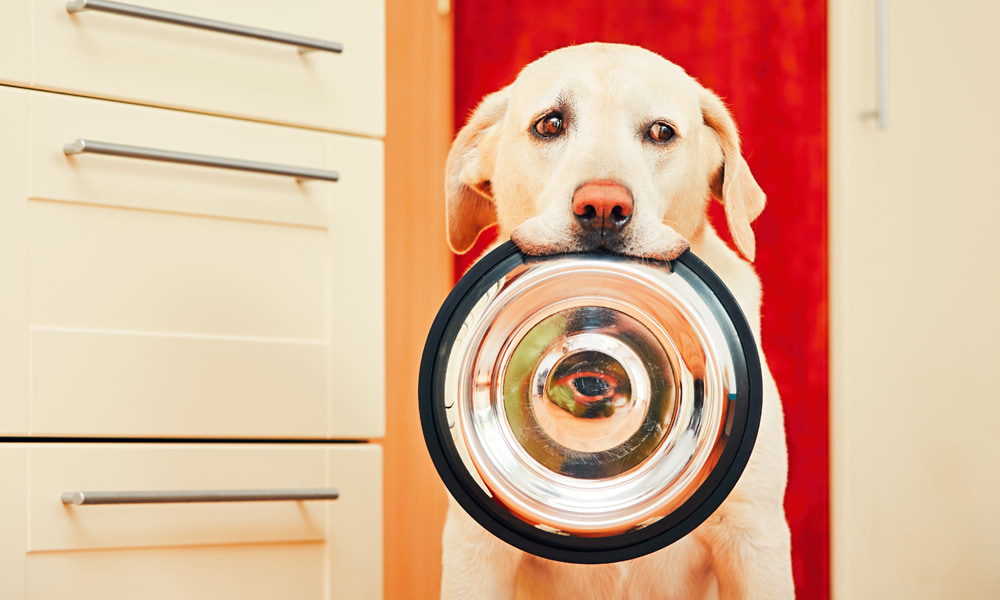
Source: canva.com
- Adding a new human member to the family. Dogs are usually pretty welcoming to new babies. That said, sleep disruptions and crying are very stressful for new parents so they’re sure to make your dog a little anxious as well. If a new adult human moves in, your dog’s reaction may be even more severe. A good way to combat this is to have the new housemate be the one to give your dog its meals. This way, your pet learns that the new family member is a source of food and not a threat.
- Having a hard life pre-adoption. Sometimes, dogs that were mistreated before they were brought into a loving home like yours develop a food obsession. This can result from nerves or just having difficulties adjusting. For dogs that were mistreated or spent some of their lives living as strays, food may have been scarce or they might not have known where their next meal was coming from. This can lead to overeating and food aggression as your dog may guard their food, afraid that someone will take it away.
Aging. Older dogs slow down and get weaker, which is not a good thing in the animal world. As dogs age, they may panic that a younger, stronger pup is going to come and steal their food so they eat as much as they can as often as they can. This might not be a problem if you only have one dog but if there’s more than one in your home, the older dog may feel like it has to move fast to get fed before the younger dogs swoop in.
It’s Trained Behavior
Some dog owners inadvertently train their dogs to beg for food. If you’ve ever thrown a treat to your dog to get them to leave you alone while you’re on the phone or engrossed in a movie or television show, you’re training your dog that begging for food works.
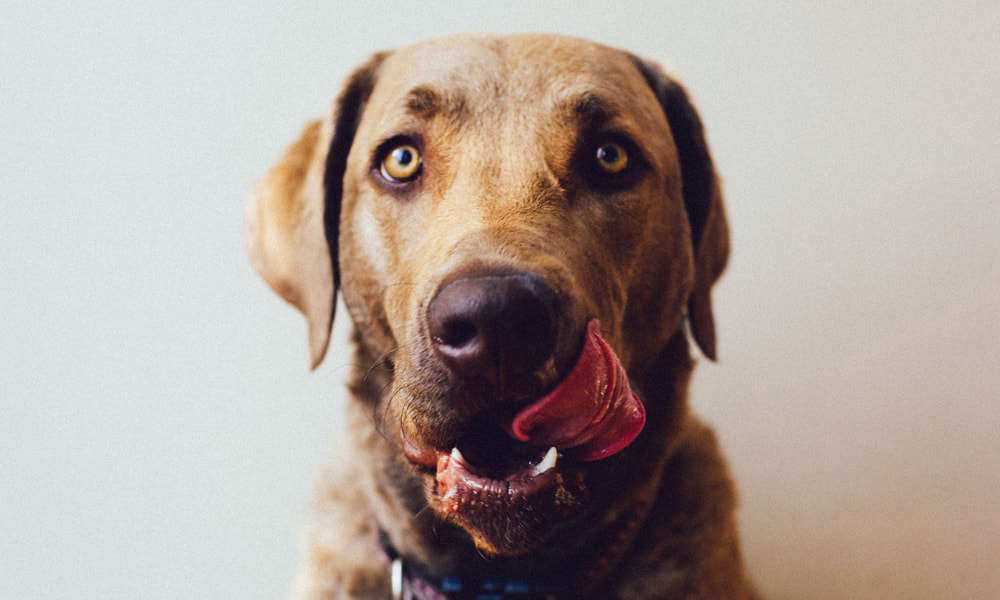
Source: canva.com
The dog sees the treat as a reward for begging which makes it hard to stop. Anytime your dog wants attention, it will come to you and beg for food, whether it’s hungry or not. Pay close attention to when you give your dog treats. They should only be used as a reward during training sessions or to reinforce your dog’s good behavior, never as a way to pacify them.
It’s a Sign of Bad Health
If your pet is otherwise healthy and not showing other concerning behavior, there’s a good chance one of the previously mentioned things is causing your dog to want to eat non-stop. That said, it could be indicative of a more serious health problem. Here are a few serious causes of an insatiable appetite in dogs.
Cushing’s Disease
As in humans, Cushing’s disease in dogs results from excess cortisol. This is considered an endocrine disorder. It’s the most common endocrine disorder that affects dogs, particularly those that are middle-aged and older. Increased appetite is one notable symptom but there are other things to look for, including increased thirst and urination, weight gain, pot belly, fat pads on the shoulders and neck, hair loss, muscle weakness, lack of energy, bruising, and hard, white scaly patches on the skin.
This condition is usually caused by a benign tumor on the pituitary gland but in about 15 to 20 percent of cases, it’s caused by an adrenal gland tumor that may be malignant. Sometimes, Cushing’s disease is caused by long term use of or high doses of corticosteroids. These medications may be used to treat allergies or other immune disorders. In this case, Cushing’s is reversed when the medication is stopped or the dose is lowered.
Diabetes
Dogs can develop diabetes for the same reasons that people do. The biggest contributing factor is obesity. Dogs don’t need a lot of carbohydrates. They weren’t really a part of the dog’s natural diet yet a lot of dog foods use fillers and grains. Most dogs will happily eat these grains but they don’t give the dog what it needs so it still seeks out other sources of protein. So, it eats more than it needs to or otherwise would. This leads to weight gain which, in turn, can cause diabetes. The good news is that weight loss usually cures diabetes so close monitoring of what you feed your dog and increased exercise are good ways to approach the problem.
Signs of diabetes include increased appetite and thirst. Generally, it’s treated with insulin, just like in humans. Dogs can also experience diabetic emergencies that require immediate attention. Too much insulin causes an extreme and dangerous drop in blood sugar. The other extreme is blood sugar getting too high which causes diabetic ketoacidosis. This is a medical emergency and immediate intervention is needed. Signs include diarrhea or constipation, twitching, seizures, weakness, and a loss of appetite.
Chronic Diarrhea or Malabsorption

Source: canva.com
Chronic diarrhea is a change in your dog’s feces and elimination pattern that lasts for more than three weeks. It doesn’t have the loose, watery stools you might associate with this disorder. Any major change in frequency, volume, or consistency can indicate a problem.
Symptoms depend on where the problem is located along the GI tract. If it originates in the small intestine, your dog may experience weight loss, large volumes of feces, black tarry stools, weight loss, frequent stooling, and an increased appetite. If the problem is in the lower intestine, symptoms may include smaller volumes of feces with an increase in frequency, bright red and mucousy stools, and pain. Note that increased appetite is more common with problems in the small bowel but it’s a good idea to keep your eyes peeled for any changes.
There are a lot of things that can cause chronic diarrhea, including infections, inflammatory bowel disease, cancer, parasites, intestinal blockage, food allergies, liver disease, and metabolic disorders.
Basically, because your dog isn’t digesting food properly, they’re not getting the necessary nutrition so they eat even more. This also explains why weight loss is possible despite an increased appetite.
Hyperthyroidism
While this is a rare medical problem in dogs, it can result from thyroid cancer or if your dog has hypothyroidism and is taking the wrong dose of thyroid medication. In addition to an increased appetite, your dog might also experience weight loss, poor muscle tone, diarrhea, vomiting, increased thirst and urination, difficulty breathing, hyperactivity, or a palpable lump on the neck.
If you suspect hyperthyroidism, your vet will do an exam and draw some labs, though the diagnosis can sometimes be difficult and require more extensive testing, including x-rays and other imaging.
This condition can often be managed with medication but thyroid removal may be necessary if caused by an invasive tumor. Prognosis depends on whether the tumor is benign or malignant, the size of the tumor, and whether cancer has metastasized to other areas of the body. Follow-up care is especially important and involves dietary changes and regular visits to the vet for additional testing.
What You Can Do
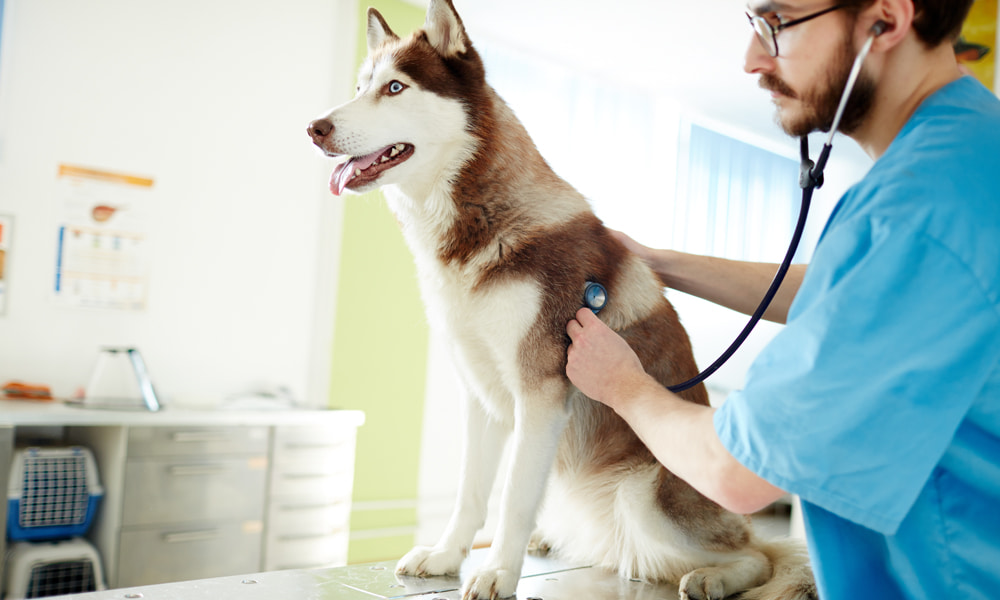
Source: canva.com
There are a few things you can do to stop your dog from eating all the time if it’s becoming a problem or if there are other health issues to consider. The interventions depend on the underlying cause and you should always talk to your vet if you’re concerned about your dog’s health or behavior before making any big changes to their feeding routine.
- Don’t give your dog people food. Yes, we know it’s tempting and you love to share but people food is full of preservatives, carbohydrates, and a lot of other stuff your dog just doesn’t need. Giving your pet a piece of food off your plate now and then might seem harmless but it reinforces begging behavior and, before you know it, your dog is going to be hounding you every time you’re trying to eat.
- Make sure you’re giving your dog enough food at mealtime. Why is my dog always hungry? Maybe it’s not getting enough food! As dogs grow and their activity levels change, so do their dietary needs. If you spend a lot of time outdoors with your pet in the summer and your dog is running, jogging, or taking long walks with you, it’s going to be hungrier than it is during the slower, colder winter days. Or, maybe you have a puppy or a young dog that’s growing faster than you realize and an additional scoop of food every day will be enough to keep it satisfied.
- If you’ve recently made changes to your home that may be stressing out your dog, be patient and supportive. Sometimes, an increased appetite that results from anxiety will take care of itself once your dog gets used to the new living arrangements or any new human members of the family.
- Take care when integrating new pets into the home. This is especially true if you have an older dog and are bringing a new young pup into the house. The older dog may feel stressed and fearful that the younger dog will steal their food and react by acting hungry all the time. Eventually, your pets are likely to get used to each other but, if not, feeding them at separate times in different areas of your home is a good solution.
Remember, your dog’s ancestors had to hunt and scrounge for food and there’s still a little bit of that left in their genes. If your dog feels nervous or threatened, these behaviors are likely to kick in. That said, there are some medical reasons why your dog might have an insatiable appetite. If you’re worried about your dog’s health or notice significant changes in its behavior, call your vet right away.
Source of Featured Image: canva.com
I grew up in a household that was filled with animals. I believe that my fate as a dog-loving person was sealed in early childhood since my parents owned several dogs of varying sizes and breeds. There was no choice but to take care of and learn about dog habits and the best animal care practices — otherwise, I’d be clueless about how to go about the creatures I was surrounded by day and night.
As a life-long puppy lover, I know a thing or two about dogs and how to go about caring for them in the best way possible. Although I’m not a professionally trained dog behaviorist, trainer, or veterinarian, all of my knowledge and experience with canines comes from a place of love and a deep-rooted passion for dogs and animals in general.
Seeing as dogs kept me company throughout every stage of my life, I decided to follow a different path in my academic life and obtained a Bachelor’s and Master’s degrees in Marketing Management and Digital Advertising, which ultimately allowed me to combine my professional training and personal experience by creating the ultimate dog lover’s resource website! Along with my husband, Dave, I run MySweetPuppy for like-minded dog lovers who want to have a single, clear, and reliable information source about anything and everything related to dogs and their well-being.

